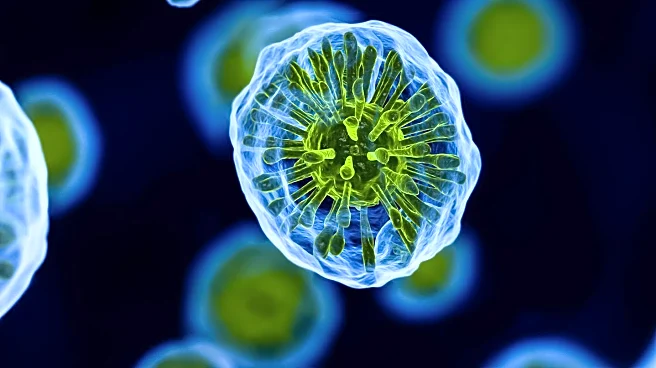What is the story about?
What's Happening?
A study has demonstrated that quaternized chitosan derivatives can inhibit the growth and affect biofilm formation of Staphylococcus aureus, including methicillin-resistant strains. Researchers synthesized cationic derivatives of chitosan using a conventional quaternization method and tested their efficacy against various strains of S. aureus. The study involved manufacturing chitosan-based nanofibrous fabrics and analyzing their antibiofilm properties using specialized chambers and confocal microscopy.
Why It's Important?
The ability to inhibit biofilm formation is significant in combating bacterial infections, particularly those caused by antibiotic-resistant strains like MRSA. This research could lead to the development of new antimicrobial materials and coatings, enhancing infection control in healthcare settings. The findings may also influence public health policies and strategies for managing bacterial resistance, potentially reducing healthcare costs and improving patient outcomes.
What's Next?
Further research is needed to optimize the synthesis and application of chitosan derivatives in real-world settings. Clinical trials could assess the effectiveness of these materials in preventing infections in medical devices and surfaces. Collaboration with healthcare providers and regulatory bodies will be essential to ensure safe and effective implementation.
Beyond the Headlines
The study underscores the potential of biopolymer-based materials in addressing global health challenges. By leveraging natural compounds like chitosan, researchers are contributing to sustainable and eco-friendly solutions in medical science, which could have long-term benefits for both human health and the environment.


















